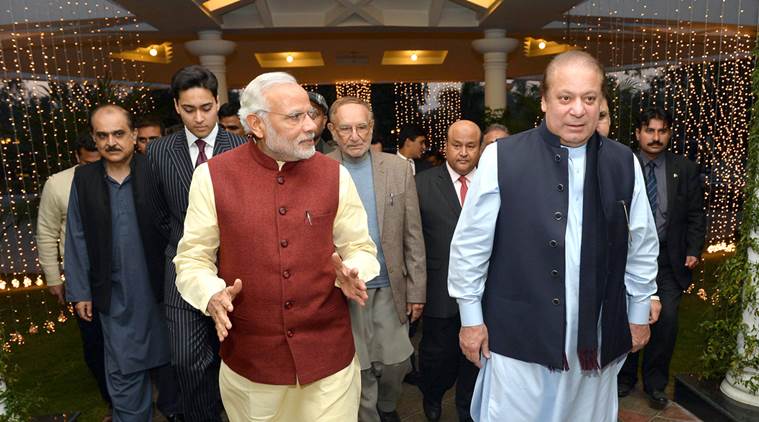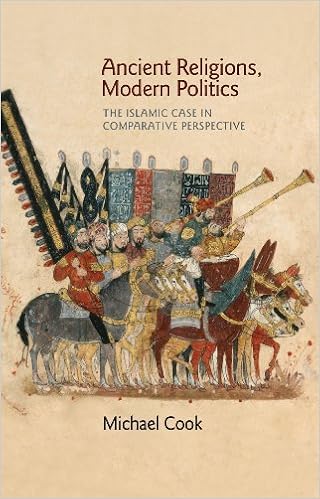
Some of the terrorists' fellow operatives in Pakistan have been identified in the media (as expected, they are university graduates unhappy at the Picketty-inequality they see around them), take a look:



Myra Macdonald has summed up the strategic situation around this attack very well in this excellent piece and it should be read in its entirety as background for this post. As the piece makes clear, the situation is not too optimistic and it may well be that it will get worse. On the other hand, Pakistan has not gone into its habitual denial mode and may even take some action against some of the terrorist networks involved. But some action may not be the same as enough action and enough action may not even be possible for the current regime in Pakistan. The question then arises, why should India bother to continue any talks with Pakistan? Since I remain in favor of such talks (albeit at mid-level and with clear and specific aims), I get a lot of heat on social media from Indians (as well as some Pakistanis) on this topic. I will try to explain some of my reasoning by trying to re-enact the sequence in which a pro-talks position can seem reasonable (at least for now), and as usual, I will have to start quite far back:
1. I take it as a given that partition was a poor solution to a real problem and has only served to perpetuate and strengthen Hindu-Muslim differences in the Indian subcontinent. But what has happened has happened, and history has moved on. Borders have been in place for decades and even though Bangladesh separated from West Pakistan, the basic formula of separating Muslim majorities at the Eastern and Western extremities of the subcontinent from the modern state of India remains in place and is unlikely to be reversed in the foreseeable future. This is recognized not just be those who cooked up the original two-nation theory, it is also recognized by most Indian nationalists and Hindutvadis (a smaller core may continue to harbor dreams of reuniting all of Indian civilization in one Hindu-dominated country, but even the dreamers do not see this as an imminent possibility; some of them even see partition as a painful but necessary first step in defanging India’s Muslim minority, but this is all a discussion for another day).
2. The Two-nation theory (TNT) in its full Pakistan military academy format (a format that really took hold well AFTER the theory was used to create Pakistan) is a dangerous theory and a recipe for endless war. This theory implies (though not all adherents are conscious of this implication) that ALL Indian Muslims became “un-Indian” the day they became Muslim. Anywhere that they are in majority, they deserve to be formally separated from secular (or Hindutvadi) India so that they can live in their new and true desired state of Islamic Pakistan. Anywhere that they are in a minority, they are only staying in India because it is not feasible to separate YET.
Kashmir, being a Muslim majority state (though including two large infidel-majority regions within it) therefore belongs to Pakistan and must be reunited with it. Arguments about rivers and communications are added to provide secular cover for this theory. That is the project which our Jihadist policy is supposed to accomplish. This obviously means conflict with India is not resolvable until Kashmir is handed over to Pakistan. Since it is abundantly clear that no Indian government will accept that solution, conflict will be endless until one side wins.
3. It is the historic task of the Pakistani bourgeoisie to give up on the two-nation theory so that they can stop this endless war and make a reasonable peace with India, with its associated peace dividend for the great mass of Indians and Pakistanis (and those beyond the two countries who pay for our proxy wars, as in Afghanistan and to a lesser extent, Bangladesh, Nepal and even Sri-Lanka).
4. As the Jihadist project grew, it also grew to be a threat to other nations (USA, China, Iran, and everyone everywhere) and to the people, and then even the elite, of Pakistan itself. Since the project involved setting up and supporting a vast infrastructure of Jihadist Sunni Islam, it has been poison for all non-Sunni residents of the nation (this is simply a given because radical Sunni Islam prescribes very harsh conditions for the survival, if any, of heterodox sects and other religions; and no survival at all for atheists). As armed gangs proliferated they learned to do other things armed gangs normally do. They extort, rob, kill for payment, etc. etc. Even the United States (initially a major supporter and patron of the Jihadi project) switched sides and is no longer tolerant of most (and some will claims, of all) such gangs. The toll exacted by their depredations on the economy and the social fabric needs no further explanation.
5. In this setting many in the civilian elite (especially those whose main concern is making money) are willing to give up on the Jihadi project if that is the only way to get peace and international patronage. The deep state has been more obstinate. They have given up bits and pieces of the project when pushed very hard, but they have not given up on its core: the “good jihadis” who target India. This has opened a bit of a gulf between the civilian politicians (most of whom, except the explicitly Islamist parties) are willing to give up the project, and the deep state, which still clings to its original Indian phase (and for that matter, with greater circumspection, even to its Afghan phase) of this violent and nihilistic project.
6. India (at least for now) does not have decisive military superiority and cannot simply impose war on Pakistan to force its will on Pakistan (not without risking unacceptable casualties and setbacks to its economic dreams). When an attack happens, it has to look for other levers, short of outright war. Many such levers probably exist, but the international community will not cooperate with India in this regard unless attacks cross some internationally accepted red line. Currently that red line does not include low casualty attacks. This irks many Indians no end (and understandably so), but the real point is that this may change in the future. Until it does so, India’s options are limited, but when it changes, they become much more plausible and threatening to Pakistan.
7. If and when the narrative shifts decisively against Pakistan (and unfortunately for GHQ, it is shifting rather fast), more and more of these levers will become usable. This is the crucial point: India can do more right now, but it is risky and may reverse its own international standing and economic progress in the process. But if and when the narrative shifts decisively in its favor, its freedom of action will expand.
8. By clearly taking the initiative for peace, India is resetting at least one part of that international narrative. It is making it harder to blame Indian intransigence for the failure of peace moves. By continuing to talk (albeit at mid-level and with very clear demands) it may also exacerbate the civil-military conflict within Pakistan.
It would be a mistake to think that the security establishment simply does what it pleases in Pakistan. It does not, and it faces increasing rifts within the elite. When someone like Ashraf Jahangir Qazi (a pillar of the sane deep state) writes like this, it means they face very real resistance. In time (and this time is not infinite, we are talking relatively short term), this makes it harder for the security establishment to maintain its own red lines within the country and outside it. Outside powers increasingly see an establishment at odds with its OWN elite. Domestic groups see it as being dangerous and even suicidal. Perceptions matter. It is in the interest of India as well as of the peace lobby (which is really the “anti-hard-TNT” lobby) in Pakistan to change perceptions and create a clear separation between the civilian ruling elite and the security establishment if the security establishment refuses to change policy.
9. This may not work at the first level, i.e. at the level of “peace talks succeed, peace breaks out”, that may not happen. In fact, it may even be LIKELY that it will not work in this way and the security establishment will sabotage peace moves or will be unable to deliver peace even if it changes its mind and wants to act sanely. But even if the initiative fails at this level, it will work to change the international narrative decisively in India’s favor (and by this, I don’t just mean the PR side of things, though that too matters to a small extent. I mean how the great powers actually perceive the situation and what options they support or tolerate). i.e. it will help change the “narrative” in favor of India’s position and make the next red line easier to enforce.
10. I obviously hope it works at the first level. As a Pakistani, I would much prefer that the security establishment comes to its senses and the country manages to get out of the jihadi violence cycle (none of which will be easy in any and every imaginable scenario). I don’t think war is in the interest of the Pakistani OR Indian elite or their long-suffering common people. Very narrow sections of the elite may believe it is in their benefit to stoke conflict, but they are narrow sections in both countries...that is exactly the reason why there is an opening.
That may be hoping for too much. But miracles are possible. I am afraid that the core Islamicate region is in the throes of a major civilizational crisis. As a major Islamic state, we share in that crisis, over and above our India-centric adventures. But we are also part of Indic civilization and our divorce from that civilization is not complete. If we can move back into that orbit (NOT back into the Indian state, just back into Indian orbit) we will have many problems to solve (the largest collection of really poor, malnourished, poorly governed people in the world for example) but at least we will not have to solve the Islamic political crisis just to continue living. That will be a major relief and a huge step forward. For that to happen, we need to make peace with India. For that to happen, both India and Pakistan will need to try (even at the cost of transiently looking bad to their own nationalist constituency) some very patient and competent maneuvers. That sounds like a tall order.
But we have to hope.


No comments:
Post a Comment